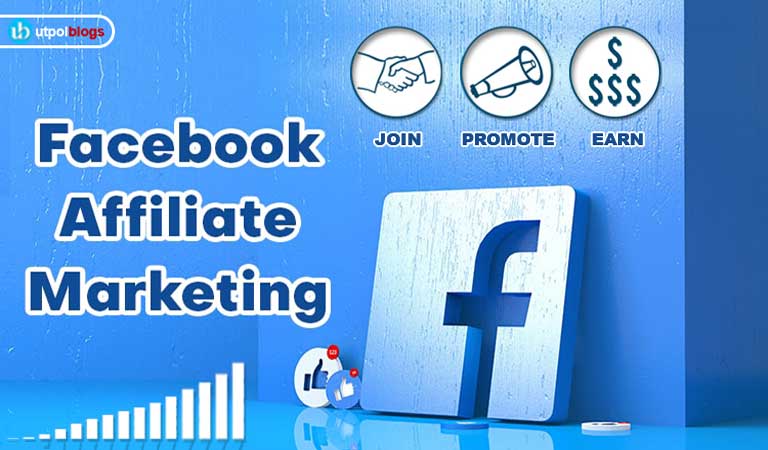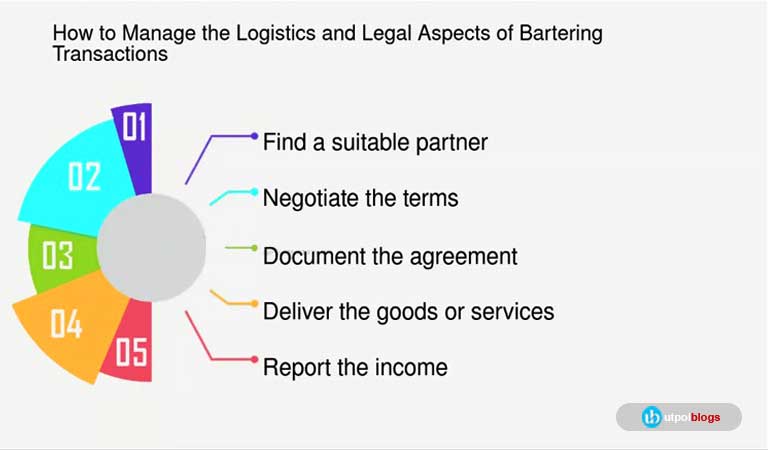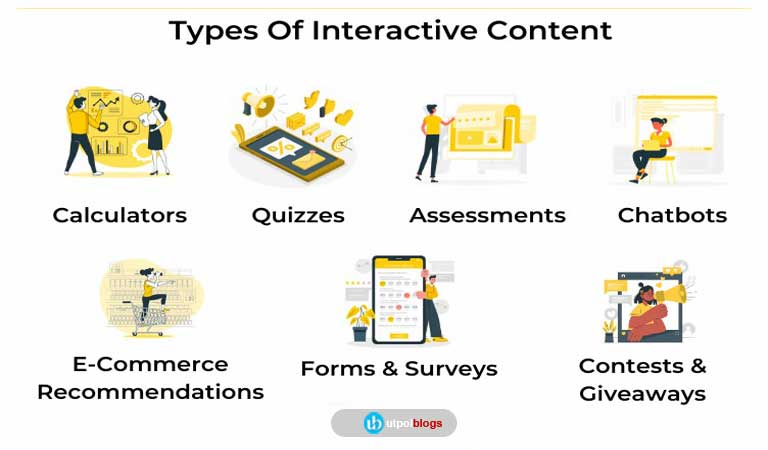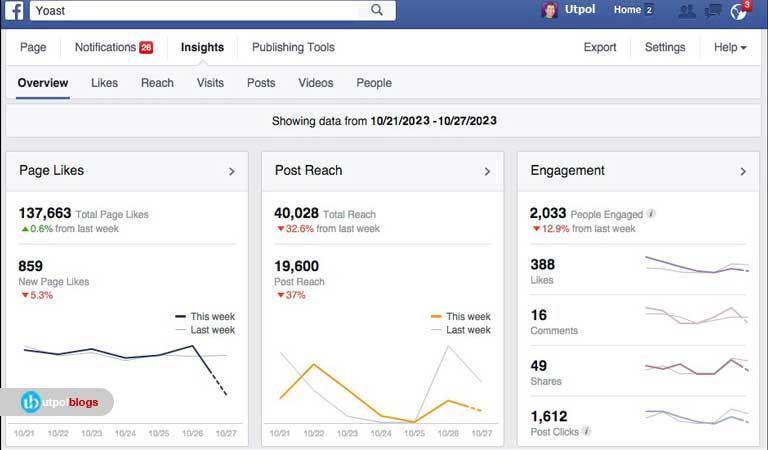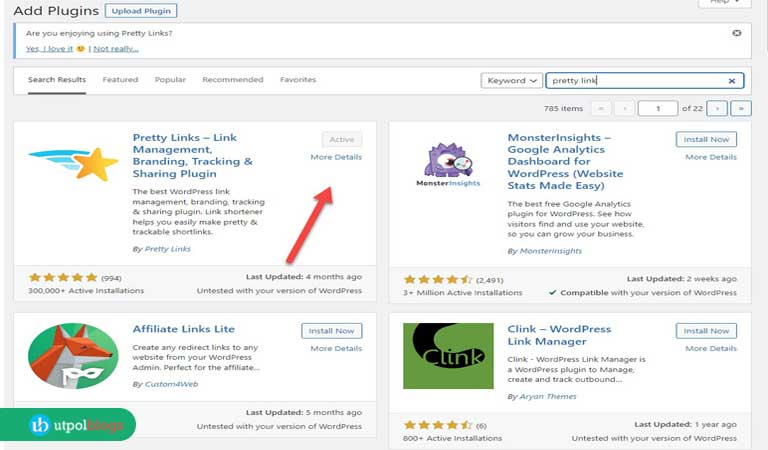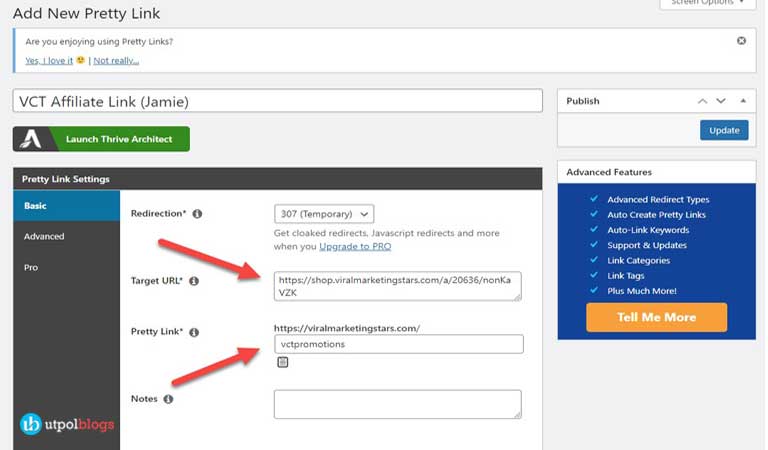Affiliate marketing on Facebook is a great opportunity to earn money by promoting products to your network. Use Facebook Ads to extend your reach and effectively target specific demographics. Create a dedicated Facebook page or group to consistently share engaging, valuable content. Engage with your followers through comments and messages to build trust and increase loyalty with users.
Publish your affiliate links to maintain transparency and credibility. By using Facebook’s powerful tools and maintaining an authentic connection with your audience, you can successfully navigate the world of affiliate marketing on facebook and achieve impressive results.
Affiliate marketing on Facebook involves using the massive reach of the platform to promote products and earn commissions through referral links.
By creating engaging posts, ads and joining relevant groups, you can connect with your target audience. You can drive traffic to affiliate offers. Facebook’s powerful ad targeting tools allow you to refine the effectiveness of your campaigns based on interests, demographics and behaviors of your audience.
Transparent disclosure of affiliate relationships helps maintain credibility and build genuine connections, resulting in better and higher conversion rates.
1. Always use an affiliate disclaimer
Business requires transparency and honesty in promoting products or services and receiving compensation. An important aspect of this transparency is the use of an affiliate disclaimer.
An affiliate disclaimer is a statement that discloses to your audience that you may receive commission or other compensation for recommending products or services on your website or social media platform.
This disclaimer helps build trust with your audience by upfront about your financial relationship with the products or services you’re promoting. It also helps you comply with advertising and consumer protection laws, as failure to disclose your affiliate relationships may have legal consequences.
An affiliate disclaimer is a statement that discloses the relationship between a website or content creator and the products or services they promote This is a way to let your audience know that you may be compensated for recommending certain products or services.
Using an approved disclaimer is essential for transparency and integrity. When you’re promoting a product or service as an affiliate, you have a vested interest in encouraging the audience to make a purchase.
By including a disclaimer, you are being upfront about this potential bias and letting your audience know that you may receive a commission if they choose to purchase through your affiliate link. In fact, Affiliate disclaimer is very important for affiliate marketing on Facebook.
If you do not disclose your affiliate relationship, your audience will not understand that you are being compensated for your recommendation. Lack of transparency can destroy trust and credibility with your audience.
2. Using affiliate disclaimers is a legal requirement in many jurisdictions.
By using an approved disclaimer, you’re protecting yourself from potential legal issues and showing honesty to your audience.
It shows that you are honest and transparent about your relationship with the products or services you promote. This transparency can help build trust with your audience and make more likely to trust your recommendations in the future.
In summary, using an affiliate disclaimer is essential for transparency, honesty and legal compliance. This is a way to let your audience know that you can be compensated for your recommendations and build trust with your audience
3. Interact with your audience
From social media interactions to live Q&A sessions, there are countless ways to engage with your audience and make meaningful connections.
Building relationships with your audience not only builds trust and loyalty, but also provides valuable feedback and insights that can help you improve your products or services.
Getting people to “like” your page is a great step in building trust and generating affiliate sales. It’s important to maintain a regular posting schedule but never overdo it.
Your visitors may block your page if they get annoyed.
Regularly post content on your blog. Don’t forget to share on Facebook. Increasing the number of articles you post each week ensures that your content is seen by the most significant number of people possible, which drives organic traffic to your blog.
Your posting should be 80% informational, and 20% marketing. Most of the time your promotional posts should be aimed at selling a specific product. But promote it with respect.
Reply to comments under your posts, either on your blog or on your Facebook page or group. You should establish a lasting relationship with your audience.
4. Improve your reach with influencers
By using active following of influencers, you can improve your exposure and increase the number of website visits. Using Facebook’s search feature, you can find relevant pages and influencers in a niche.
Offers an affordable and effective way to expand and connect with larger audiences online.
A very effective way to increase your reach and engagement is to collaborate with influencers.
You can reach out and extend an invitation to see if they are interested in promoting your content to their followers Focus on micro-influencers if your website is just starting out.
An influencer will only distribute high-quality content if it provides real value to their followers. So you always make sure that your content is worth promoting to followers.
5. Organize a Facebook contest
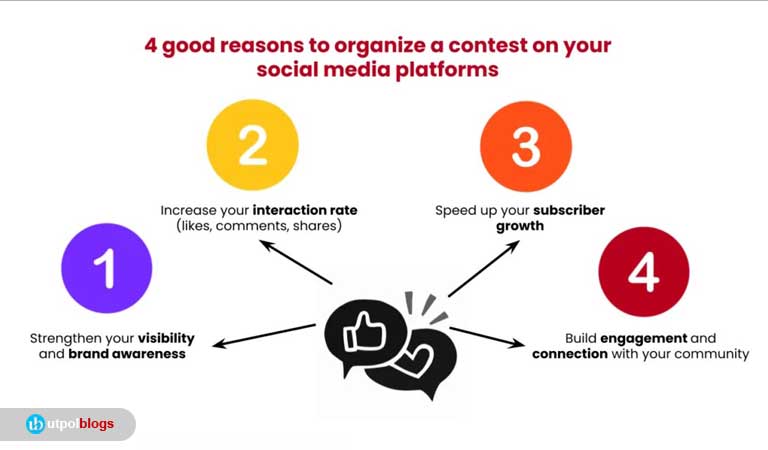
You can ask your audience to sign up for your newsletter so they can enter the contest. It will also help you increase your email subscribers.
The more valuable your prize is to your Facebook audience, the more likely you are to get a response.
Rewards don’t need to be expensive, but should be something that your audience needs. The prize can be a premium e-book or a small cash prize. Product owners use this method to promote their products.
6. Always check your Facebook Page Insights
You publish different content to engage your audience. When visitors come to your Facebook page, how do they interact with it?
Basically, it helps you understand how your page is performing and how your visitors are interacting with your content.
Insights show you which posts are performing well and which aren’t This allows you to see what types of content resonate with your audience and what doesn’t.
So, instead of wasting time and resources on content that isn’t hitting the mark, you can focus on creating content that your audience loves. You can see how your followers are interacting with your page by looking at metrics like likes, comments and shares.
Are your ads driving traffic to your website? Are your posts generating leads? By analyzing the data provided by Insights, you can see the impact of your marketing campaigns and make informed decisions about how to optimize them for better results.
7. Your affiliate link mask
Masking your affiliate links involves using a tool or plugin to create a short and browser-friendly link that redirects to your affiliate offer. Also use a URL shortening service like Bitly or TinyURL to create a shortened version of your affiliate link This makes it easier for your visitors to remember and more likely to click.
Advanced plugins like geo-targeting and link management can be accessed through the WordPress dashboard.
Masking your affiliate links involves using a tool or plugin to create a short and browser-friendly link that redirects to your affiliate offer. Not only does this improve the overall aesthetic of your marketing materials, but it also improves the credibility and professionalism of your affiliate campaigns.
By masking your affiliate links, you can more effectively track your campaign performance and gain valuable insight into which tactics are resonating with your audience.
Ultimately, investing the time and effort to mask your affiliate links can result in improved click-through rates, higher conversions and increased revenue for your affiliate marketing business.
Link masking is a technique used to disguise your affiliate link so that it appears to your visitors as a normal, clean URL. By masking your affiliate links, you can protect your commissions and ensure that you receive credit for any sales that result from your referrals.
8. Make sure to include relevant hashtags
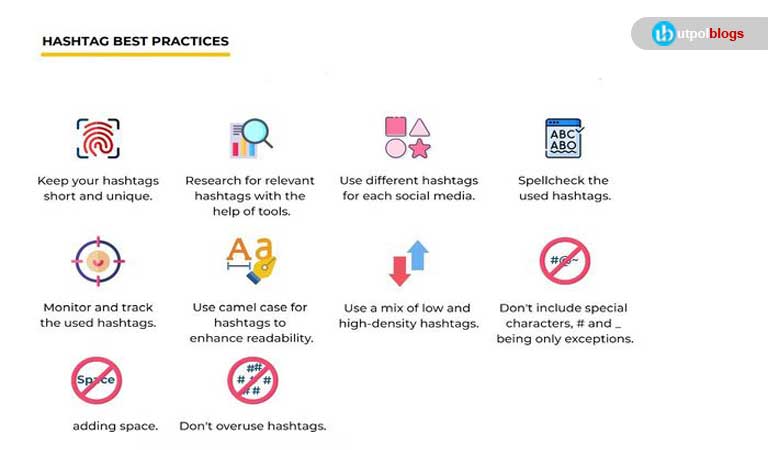
You can use hashtags to organize posts. You can target specific audiences on Facebook using hashtags. Hashtags are used on Instagram and Twitter, but you can also use them on Facebook. Hashtags help you increase your post views and reach a larger audience.
When using hashtags, make sure sense for the content. Using a random trendy hashtag will only make your content appear as spam.
By using hashtags, you’re basically making it easier for people interested in you to find your posts. This means that when someone searches for a particular hashtag, they are more likely to land on your post if you include that hashtag in the caption of your Facebook Page posts.
Another key benefit of using hashtags on Facebook is that they can help you reach a larger audience beyond your product or service followers.
When you use a hashtag, your post can be found by anyone searching for that hashtag, even if they don’t follow you.
This can be especially beneficial for reaching new followers and potential customers who might not otherwise have found your account.
By including relevant hashtags in your Facebook Page posts and monitoring their effectiveness, you can effectively increase your online presence and connect with more people who are interested in what you have to offer.
9. Sell products that users want
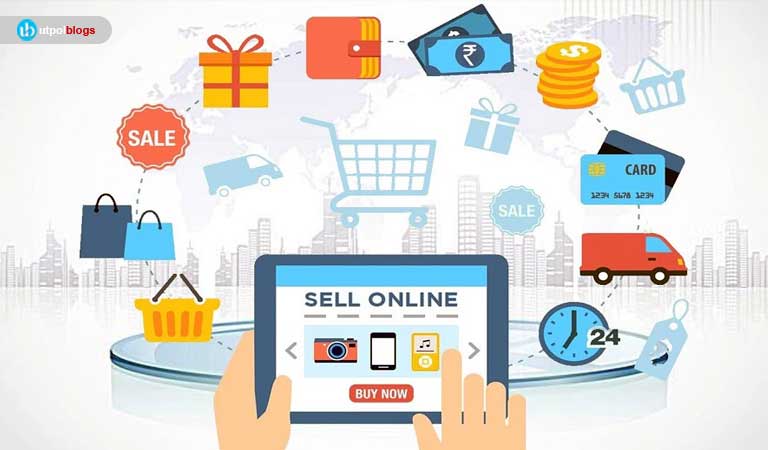
There are many new affiliate marketers who want to sell many different products at once. Here they go mistake. When you introduce a new product, you must keep in mind that it will benefit the audience.
Remember you are building a brand. If you sell quality products, your customers will be more interested and keep coming back. Your customer will be interested in providing value for their money.
If you sell random products every day then you will lose your customers. To avoid all this you need a long term plan.
Spend some time investigating valuable items and select products that your target audience will love.
When you join a Facebook group, you become part of a community where you can sell products, ask questions, share your experiences, and learn from others.
Find relevant groups to promote your business on Facebook and join them. By sharing your content among these groups, you can reach a highly targeted audience who will engage with your posts and be more likely to sell products. The main goal of posting in Facebook groups is to connect with other members and provide valuable content.
10. Create an opt-in page
Are you looking to grow your email list and connect with potential customers or clients? One effective way is to create an opt-in page. Here visitors provide their email address or other details.
Creating an opt-in page involves designing an eye-catching layout and including a clear call-to-action. By clearly outlining the benefits of signing up and making it easy for visitors to subscribe.
By creating an opt-in page you can increase your opt-in rate and grow your email list Better to use an opt-in page to collect their emails before sending them to a landing page.
This allows you to send the same offer again via email. If they don’t buy the product you’re promoting.
Pros and Cons of Affiliate Marketing on Facebook
Pros
Wide Audience Reach: With billions of active users, Facebook provides access to a huge, diverse audience. Allows marketers to target specific demographics and interests and increase the likelihood of conversion.
Targeted advertising: Facebook’s advanced targeting options let you reach audiences based on things like age, location, interests and behavior.
Cost-Effective Advertising: Compared to other advertising, Facebook ads are relatively inexpensive.
You can start with a small budget and make it accessible to newbies as you see results.
Engagement Opportunities: You can interact directly with Facebook potential customers through comments, likes and shares.
You can encourage more clicks on affiliate links.
Analytics and Insights: Facebook provides detailed analytics, allowing you to track campaign performance in real-time. This data strategy will help you improve the refinement results.
Cons
If you want to get very fast results with affiliate marketing on Facebook then you need to spend money and use paid ads.
High Competition: Affiliate marketing requires strategic thinking, which can be challenging, especially for beginners.
Ad Fatigue: Users often experience add fatigue due to constant exposure to advertisements. This can lead to lower engagement and lower conversion rates over time.
Strict policies: Facebook has strict advertising policies that may result in banning of accounts. You must adhere to these guidelines.
Algorithm Changes: Facebook frequently updates its algorithm so you must constantly adapt to these changes and add complexity to your campaigns.
Final Verdict:
Affiliate marketing on Facebook can be extremely effective due to its large audience and precise targeting tools.
By using Facebook’s advertising tools, you can reach highly specific audiences, increasing the likelihood of conversions. Key strategies include creating engaging content, using eye-catching visuals, and regularly monitoring and adjusting campaigns based on performance data.
You can also benefit from joining relevant Facebook groups and engaging with the community to build trust and credibility.
However, it is very important to adhere to Facebook’s advertising policies to avoid account issues Overall, with the right approach and consistent efforts, Facebook affiliate marketing can be a highly effective platform for driving traffic and increasing sales of various products and services.

